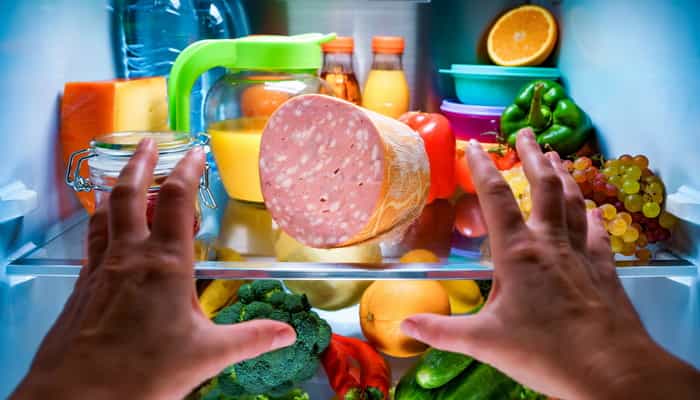A large amount of food on the table, a reason to celebrate, an irresistible appetite, an unwillingness to let food go to waste … Overeating can occur for many reasons, but it is always an unpleasant ailment that is harmful to health. The stomach is able to stretch to a large size, so a single overeating is not very harmful, but if it happens too often, it can lead to overweight and obesity.
Overeating – symptoms
Acute pain in the stomach after overeating is the easiest symptom to detect – the stomach is full and looks like it’s about to burst. This unpleasant sensation occurs after a heavy meal, especially fatty. Due to the fact that such dishes are more difficult to digest, they also take longer to digest.
Stomach pain from overeating is not the only sign that you may be overdoing the amount of food you eat. There is also a feeling of heaviness in the stomach, caused by the remnants of excess food. Heartburn, nausea, and reflux of the contents of the stomach into the esophagus are the same unpleasant symptoms as stomach pain – overeating is also manifested by vomiting and diarrhea. The consequences of overeating are also: weakness, drowsiness, deterioration of well-being and belching after eating.
Overeating: Food for the night

It takes six to eight hours to digest a large amount of dinner – it is during this time that food passes through the stomach and small intestine. It is very helpful to stay upright during this time, as gravity helps the digestive system push food into the intestines. Movement is also useful, even in the form of a walk – activity stimulates intestinal motility, which speeds up digestive processes.
Therefore, overeating late at night is especially unhealthy, because the body does not tend to burn calories in preparation for sleep, but stores them as fat. Eating before bed can lead to stomach pain, heartburn, and indigestion. In the long term, even the risk of esophageal cancer increases, as overeating at night often leads to reflux, and the reflux of stomach contents into the esophagus can cause inflammation and even cancer. Eating dinner less than three hours before bed is especially conducive to reflux.
Overeating at home
What will be effective in overeating? One of the most famous ways is vodka with pepper. 50 ml of vodka before or after a large meal improves digestion and improves blood circulation in the intestines. Thanks to this, the body digests the food consumed faster. People who cannot tolerate such strong alcoholic beverages can drink a glass of red wine with food. However, remember to drink alcohol in small amounts – small amounts can be good for digestion, but when alcohol is present in large amounts, it can lead to diarrhea or constipation.
Overeating symptoms in adults and children can be treated with teas. A cup of hot black tea stimulates the secretion of gastric juice, warms and helps the body digest fats. Green tea has a very similar effect, quickly eliminating the feeling of fullness in the stomach.
The diet after overeating should also include infusions of herbs and spices, such as ginger tea, which can be prepared from powdered ginger or fresh rhizomes. It speeds up the metabolism, warms the stomach and increases the production of digestive juices. On the other hand, marjoram infusion is an effective treatment for indigestion, as it soothes the stomach problems it causes. For pain in the abdomen, you should choose tea from chamomile or lemon balm, and St. John’s wort is an effective remedy for heartburn.
Overeating drug
What to do after overeating? One method is to take medication, but with this ailment, it is not recommended to take typical painkillers. In most cases, they do not eliminate the causes of pain after overeating. Instead, diastolic preparations should be chosen, i.e. containing drotaverine or hyoscine. Why are they the most effective? Gastrointestinal disorders usually cause painful spasms of the abdominal muscles, so antispasmodics are most effective. You can also use preparations containing trimebutine, which are available without a prescription. Their use is recommended for the symptomatic treatment of digestive disorders, manifested by abdominal pain, accompanied by a feeling of fullness, nausea and flatulence.
One of the most common symptoms of overeating is heartburn, with severe burning around the esophagus and stomach. This is due to hydrochloric acid, which is produced in the stomach and is needed for digestion, but with an excess of it, the natural balance is disturbed and an unpleasant burning sensation occurs. You can fight it with the help of shielding and barrier preparations of the stomach, antacids and agents that inhibit acid formation in the cells of the stomach.
It is also worth turning to anti-binge eating pills when you feel full and flatulent.








